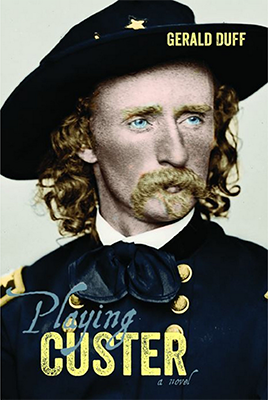

Connecting Texas books and writers with those who most want to discover them
TRAVELING?
Don't miss our
Top Bookish
Destinations

Lone Star Book Reviews
by
 Texas-based writer Rod Davis is the author of the novels South, America and Corina’s Way and the nonfiction American Voudou. www.rodavisauthor.com
Texas-based writer Rod Davis is the author of the novels South, America and Corina’s Way and the nonfiction American Voudou. www.rodavisauthor.com
Gerald Duff is a winner of the Cohen Award for Fiction, the Philosophical Society of Texas Literary Award, and the Silver Medal for Fiction from the Independent Publishers Association. A member of the Texas Institute of Letters, he has published nineteen books. He published Home Truths: A Deep East Texas Memory with TCU Press in 2011. He resides in Lebanon, Illinois.
277 pgs., 978-0-87565-606-9, $22.95 paper
“No? What where they doing then when all that killing was going on?”

![]()
![]() LONE STAR LITERARY LIFE copyright © 2015–18 Paragraph Ranch LLC • All rights reserved • CONTACT US
LONE STAR LITERARY LIFE copyright © 2015–18 Paragraph Ranch LLC • All rights reserved • CONTACT US


